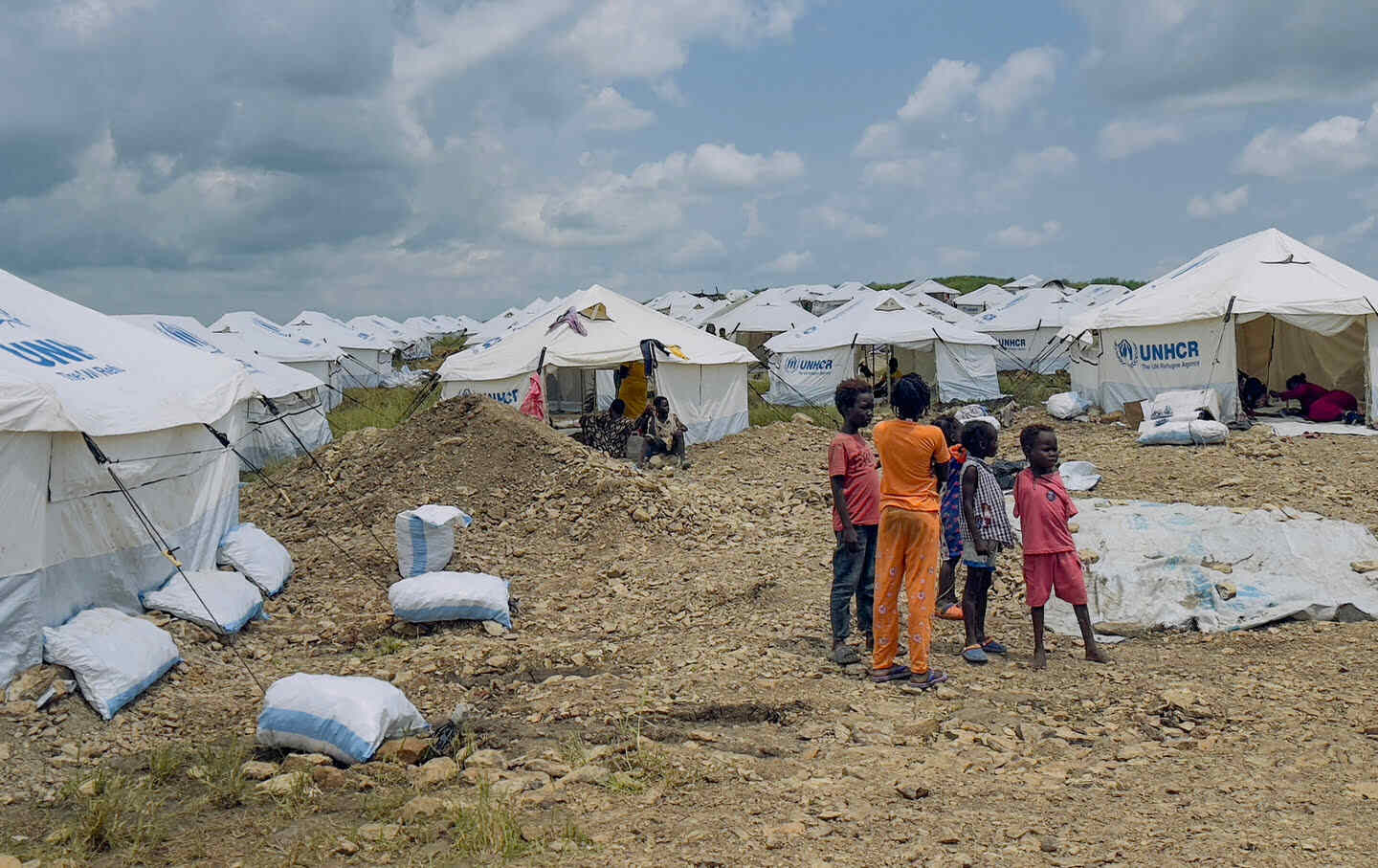The Ongoing Catastrophe of Sudan’s Civil War
On this episode of American Prestige, Khalid Medani on the state of play in Sudan’s civil war.

Here's where to find podcasts from The Nation. Political talk without the boring parts, featuring the writers, activists and artists who shape the news, from a progressive perspective.
On this episode of American Prestige, Derek and Danny are joined by Khalid Medani, associate professor of political science, director of the Institute of Islamic Studies, and chair of the African Studies Program at McGill University, to talk about the state of play in Sudan's civil war. They delve into the military stalemate between the Sudanese Army and Rapid Support Forces (RSF), the humanitarian crisis reaching 13 million displaced and 26 million on the brink of starvation, involvement from outsider actors including Egypt and the UAE, the strategic importance of the besieged city El Fasher in Darfur, the defection of the RSF’s Gezira commander, Abuagla Keikal, over to the Sudanese military, and more.
Note: After the recording of this episode, the RSF massacred 120 people in eastern Sudan.
Advertising Inquiries: https://redcircle.com/brands
Privacy & Opt-Out: https://redcircle.com/privacy

Displaced Sudanese children who have returned from Ethiopia gather amid tents fortified against heavy rain by sandbags, in a camp run by the United Nations Refugee Agency (UNHCR) in Sudan’s border town of Gallabat, on September 4, 2024.
(AFP / Getty Images)On this episode of American Prestige, we’re joined by Khalid Medani, associate professor of political science, director of the Institute of Islamic Studies, and chair of the African Studies Program at McGill University, to talk about the state of play in Sudan’s civil war.
We delve into the military stalemate between the Sudanese Army and Rapid Support Forces (RSF), the humanitarian crisis reaching 13 million displaced and 26 million on the brink of starvation, the involvement from outsider actors including Egypt and the UAE, the strategic importance of the besieged city El Fasher in Darfur, the defection of the RSF’s Gezira commander, Abuagla Keikal, over to the Sudanese military, and more.
Note: After the recording of this episode, the RSF massacred 120 people in eastern Sudan.

Here's where to find podcasts from The Nation. Political talk without the boring parts, featuring the writers, activists and artists who shape the news, from a progressive perspective.
Danny and Derek are back with the news, but without much of a choice. This week's American Prestige News Roundup: the US and Russia meet in Riyadh to discuss future bilateral discussions to end the war in Ukraine (0:38); Ukrainian president Volodymyr Zelenskyy and Donald Trump feud in public comments (3:38); The Daily Telegraph reports on a US mineral rights deal that Zelenskyy rejected (8:22); in Israel-Palestine news, Saturday’s hostage exchange was successful (12:49) and Hamas offers an expedited hostage release schedule (15:08); Israel decides to ignore the withdrawal deadline in Lebanon (19:26); the US State Department decides to change the wording on a fact sheet about Taiwan and China responds negatively (21:58); in South Korea, former president Yoon goes on trial (24:43); the RSF militia in Sudan attempts to form a government and controversy ensues (26:35); in the Democratic Republic of the Congo, M23 (supported by Rwanda) takes Bukavu while continuing to advance north and south (31:10); Argentinian president Milei is accused of a rug pull after the cryptocurrency he endorsed collapses (33:34); and in the United States, Trump and Musk fire National Nuclear Security Administration workers without understanding what their jobs meant (35:34), and Trump proposes cutting the defense budget (39:09).
Advertising Inquiries: https://redcircle.com/brands
Privacy & Opt-Out: https://redcircle.com/privacy
